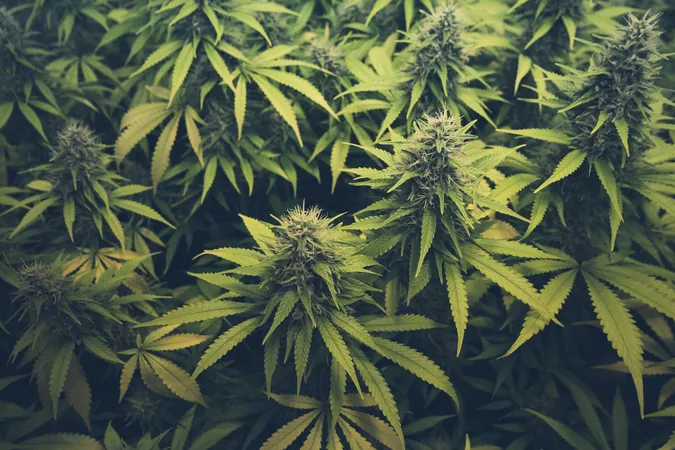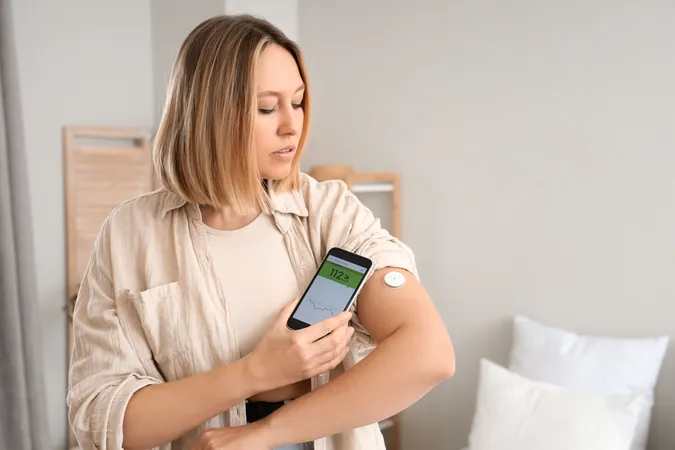
Shocking Findings: Adolescent Cannabis Use Linked to Increased Psychosis Symptoms!
2024-11-11
Author: Mei
In an alarming new study published in JAMA Psychiatry, researchers have revealed a significant connection between adolescent cannabis use and heightened psychosis spectrum symptoms. Adolescents who dabble with cannabis are reporting not only a greater number of these symptoms but also experiencing more distress than their peers who refrain from its use.
The Research Behind the Trend
Led by Dr. Juston Osborne from the Department of Psychiatry at Washington University in St. Louis, Missouri, the study underscores a disturbing trend: the rise of cannabis use among adolescents, which has surged from 11% to 22% over the past 20 years. Simultaneously, the perceived risks associated with cannabis consumption have plummeted, from 36.3% to just 25% of adolescents recognizing the potential dangers of weekly use. This seismic shift raises red flags given the established correlation between cannabis use and the development of psychosis, with users facing a 2 to 4 times higher risk than non-users.
Dr. Osborne and his team posited three crucial hypotheses to explore how adolescent cannabis use may contribute to psychological issues:
1. Contributing Risk Hypothesis
Cannabis may disrupt crucial neurodevelopmental processes, possibly leading to the onset of psychosis.
2. Shared Vulnerability Hypothesis
There may be common genetic, gestational, or environmental factors that predispose individuals to both cannabis use and psychosis.
3. Self-Medication Hypothesis
Some adolescents may turn to cannabis in an effort to relieve symptoms of psychosis, such as anxiety and emotional distress, effectively attempting to "self-medicate."
A Look at the Data
This pivotal study utilized data from the Adolescent Brain Cognitive Development (ABCD) Study, a comprehensive longitudinal research effort assessing the mental and physical health impacts on children across the U.S. The analysis involved 11,868 adolescents aged 9 to 10 at baseline, providing a robust dataset for evaluating the link between cannabis initiation and psychological health.
The results were eye-opening: adolescents who experimented with cannabis reported an increase in psychosis spectrum symptoms (B, 0.86; 95% CI, 0.68-1.04) and higher levels of distress (B, 1.17; 95% CI, 0.96-1.39) compared to those who did not. Incredibly, those heading towards cannabis initiation also showed a marked rise in psychosis symptoms (B, 0.16; 95% CI, 0.12-0.20) and distress (B, 0.23; 95% CI, 0.21-0.26), lending credence to the self-medication hypothesis.
Final Thoughts and Future Implications
The implications of this study cannot be understated. The correlation between adolescent cannabis use and increasing psychosis spectrum symptoms paints a stark picture of the potential risks associated with this trend. Dr. Osborne and his colleagues advocate for further research to track individuals longitudinally after cannabis initiation to definitively test the contributing risk hypothesis.
As we move forward, this study serves as a critical reminder for parents, educators, and policymakers alike about the essential need for prevention and intervention strategies surrounding youth cannabis use. As society grapples with these challenging issues, what will it mean for the next generation? The conversation has only just begun.



 Brasil (PT)
Brasil (PT)
 Canada (EN)
Canada (EN)
 Chile (ES)
Chile (ES)
 Česko (CS)
Česko (CS)
 대한민국 (KO)
대한민국 (KO)
 España (ES)
España (ES)
 France (FR)
France (FR)
 Hong Kong (EN)
Hong Kong (EN)
 Italia (IT)
Italia (IT)
 日本 (JA)
日本 (JA)
 Magyarország (HU)
Magyarország (HU)
 Norge (NO)
Norge (NO)
 Polska (PL)
Polska (PL)
 Schweiz (DE)
Schweiz (DE)
 Singapore (EN)
Singapore (EN)
 Sverige (SV)
Sverige (SV)
 Suomi (FI)
Suomi (FI)
 Türkiye (TR)
Türkiye (TR)
 الإمارات العربية المتحدة (AR)
الإمارات العربية المتحدة (AR)